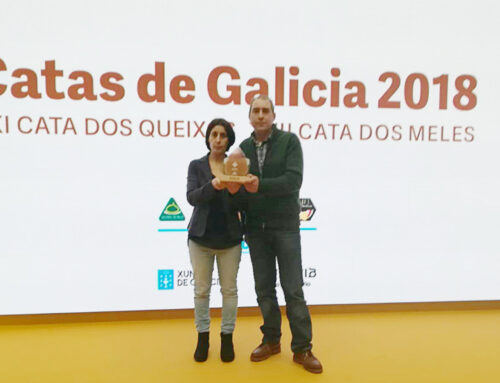Salomé Soutelo | El Faro de Vigo |19.07.2014 13:49
The cattlemen of the districts are entitled to 10,000 of the 450,000 tons of quota that manages the national reserve of milk and that the Ministry of Agriculture intends to distribute in September to equalize the real production and the quota that each farm has to minimize the risk of pay the super.
The regional secretary of Unións Agrarias, Román Santalla, made these calculations yesterday to insist that this distribution has to take place before two months, because the production increase is constant. In June, the volume of milk that was placed in the industry was already 5% higher than in June of last year. Moreover, according to the monitoring report prepared by the Ministry of Agriculture, in the current campaign 60% of the producers (that is, two out of every three farms) will exceed the quota assigned to them. The study estimates that, until March 31 of next year, Spanish farmers will have delivered 6.7 million tons of milk, so they will sell between 211,000 and 307,000 tons above what they are allowed to produce.
Austria, Germany and the Netherlands are in the same situation as our country: they far exceed their quota and last Monday they tried to renegotiate the fine at the European Council meeting, to pay only 100 of the 600 million euros they must contribute. The other countries are opposed because a concession of this type would mean helping these countries to consolidate even more in an increasingly globalized market. The Secretary of Young Farmers, Francisco Bello, clarifies that “the regulations will not be changed for this season, so that whoever produces more, will have to pay”.
From Unións, Spain is asked for “a different treatment, because we are the country of the European Union that has had to kill more cows to adjust to the quota system”, which came into force 30 years ago and which ends on April 1 of 2015. Throughout this week, the union organizations met with senior officials of the Magrama to achieve this share of the national reserve, an aspect that the cooperatives oppose and also Asaja, the union in which integrates Young Farmers. Bello explains that the distribution does not solve the problem of overproduction, since it will be carried out with criteria that will give some producers more quota than others, which will end up dividing the sector. He advocates compensation “that will treat everyone equally or, at least, have deferences with the farmers that least exceed their quota.” Asaja fears that, if the national reserve is shared, those farms that already double their quota – just four months into the season – continue to increase production, with which the supertase would be very high and would affect the entire sector in general. Therefore, Bello calls for a mechanism to punish these farms that turn a deaf ear to their quota, while asking the Magrama to frequently alert each farm about the evolution of their milk production.
After this week’s meetings, on Monday, the 21st, the unions meet with the Conselleria de Medio Rural, Rosa Quintana, to remind her that her department also has obligations when it comes to making sure that the so-called dairy package is fulfilled. “The contracts have to indicate the reference price and the volume of milk that is delivered, and they have to be signed before the farmer has already sold his product,” demands Santalla.






